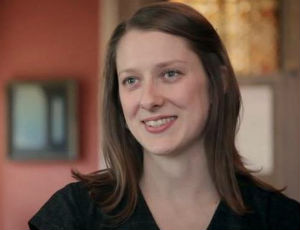Where would Chicago be if it weren't for Jane Addams?
September 18 marks the 125th anniversary of Hull House, the settlement founded by Jane Addams that changed the lives of many individual Chicagoans while also challenging the status quo through reform and activism. The Hull House Association, which carried on the social service aspect of Jane Addams' work, ceased operation in 2012. However, you can still visit the original building and dining hall at the Jane Addams Hull House Museum.
Learn more about Hull House using our Online Resources for History Fair or try these essential Jane Addams reads:
Twenty Years at Hull-House With Autobiographical Notes
I spoke with Interim Director Lisa Junkin Lopez about the museum's work as a "dynamic memorial." Check out the interview to learn more about Hull House and its legacy.
Q: There are permanent exhibits at the museum detailing Jane Addams' life and the people of Hull House, but some of the most exciting things at the museum are your programs that are not simply educational; they invite dialogue and debate. Where do you get ideas for programs like The Porch Project or Re-Thinking Soup?
A: There are a number of points of inspiration for our programming, the first being the history of the place itself. Hull House worked on issues of immigration, labor reform, women's issues and more. The museum keeps those conversations alive by asking how do people sustain themselves for a life of working toward social justice? Hull House was always a community center, an active place. The place that it was inspires us today.
Q: Do you see these programs as an extension of Hull House and Jane Addams' mission?
A: The original Hull House was comprised of 13 buildings and served thousands of people. What we do at the museum is to carry out a small part of Jane Addams' expansive mission. Much of Hull House's work is now done by government and social service organizations. What the museum can do is help create a dynamic public sphere to debate and discuss what it means to live in a democracy.
Q: Like your recent event honoring Jane Addams' birthday.
A: Right. Every year on Jane Addams' birthday, we host a feminist activist speaker. This year, we invited Miss Major Griffin-Gracy, a transgender and prison rights activist. The literature about Jane Addams makes it evident that the work being done at Hull House was not just a Band-Aid to make one person's life better for one day. The people at Hull House were working collectively to improve a rapidly industrializing society. Even those who know about Jane Addams are surprised by the expansive and progressive work that was being done here. Jane went far beyond individual casework.
Q: What resources do you offer students and researchers who are interested in learning more about Ms. Addams, Hull House, or even neighborhood history?
A: The museum works in partnership with the University of Illinois at Chicago Daley Library and its special collections department. First of all, it's so important for students to be in the place where all this history happened, to actually see the artifacts and get a sense of what life was like for the residents. Anyone who wants to do more in-depth research is welcome to make an appointment with Special Collections to view archives related to the institution including oral histories from individuals in the neighborhood. (Find information on research options at UIC online.)
I hope you, dear reader, have time to go visit the Hull House Museum for yourself. It is so much more than a memorial.



Add a comment to: Vital Voices: Jane Addams Hull House Museum